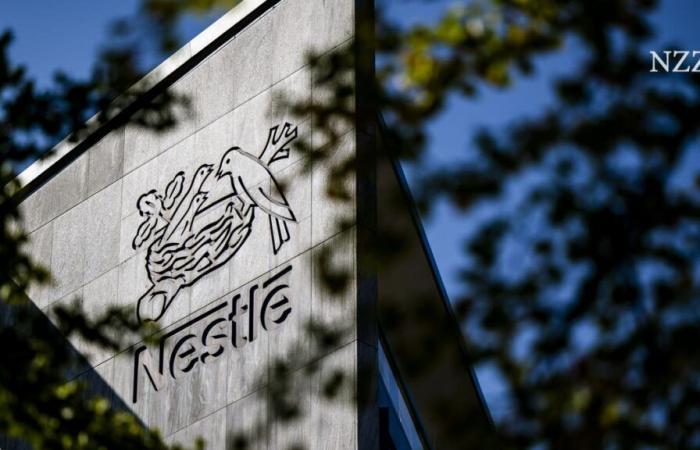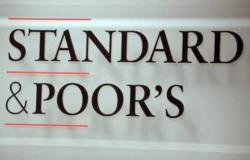Nestlé management has not yet managed to regain the lost trust of investors. How did this come about – and what happens next?
Since their peak at the beginning of 2022, Nestlé shares have lost around 40 percent of their value – the headquarters in Vevey is pictured.
Jean-Christophe Bott / Keystone
There was a time when Nestlé sparked imagination. This was primarily associated with the name Mark Schneider. The former Nestlé boss was able to give investors hope that the world’s largest food company can reinvent itself.
Mark Schneider had to step down as Nestlé boss in August 2024.
Keystone
Schneider liked to talk about vegan shrimp: Nestlé should advance into future markets with plant-based meat and milk substitute products. The German pushed the business with vitamins and medical nutrition in order to make Nestlé more of a health and wellness group.
He garnished the restructuring with a shareholder-friendly dividend policy. Investors were thrilled: At its peak in early 2022, Nestlé was the most valuable company in Europe.
But since then the fantasy has evaporated. Nestlé shares have lost around 40 percent of their value. The price collapse cost Mark Schneider his job last August. Many Swiss people are also affected, because the stock market heavyweight Nestlé is part of most pension fund assets.
And investor confidence has not yet returned. The new Nestlé boss, Laurent Freixe, tried in vain to convince investors at an investor day last week that the food company would now look up again. The share price has continued to fall so far.
The new Nestlé boss Laurent Freixe.
Keystone
How did the estrangement between Nestlé and investors come about? And what happens next? An analysis in five points.
1. Die Inflation
At the beginning of the decline there is a shock that few had expected. At the beginning of 2022, inflation is returning in many countries. “Please everyone buckle up,” is Schneider’s internal warning about the coming turbulence. Nestlé is succeeding in passing on rising global prices to its customers. But the company is sometimes exaggerating its price increases: In the USA, for example, inflation-stricken consumers are holding back on buying Nestlé branded products.
Nestlé is facing an unusual situation. In his first years in office from 2017, Schneider managed to boost product sales, partly thanks to a special Corona effect. But now the growth is over. Sales volumes – which Nestlé calls “real internal growth” – have been declining for several quarters.
Investors and stock analysts don’t like that. They expect steady growth in sales volume from a consumer goods company like Nestlé. The company is supposed to plow through the world markets like a supertanker, unaffected by economic storms. The stock price begins to decline.
2. The interest
At the same time, another factor is working against Nestlé. To combat inflation, central banks around the world are raising interest rates. This makes Nestlé shares less attractive.
During the zero interest rate phase, one of the strengths of Nestlé stocks was their stable dividend yield of 2.5 percent or more. The group is known for its dividend policy: over the past thirty years, the dividend has increased slightly every year. But from 2022, investors will be able to achieve comparable returns again with secure fixed-interest investments. This dampening effect on Nestlé shares is only likely to reverse when interest rates in the USA and Europe fall significantly again.
3. Own mistakes
However, Nestlé cannot blame all of the problems that will arise from 2022 on inflation and interest rates. The company’s management makes unusual mistakes. An IT change is shutting down factories in the USA, meaning Nestlé cannot deliver vitamins for weeks. Schneider, who has previously been praised for his clever company acquisitions, has to admit that the purchase of a remedy for peanut allergies was a flop. In important markets such as the USA, Nestlé is losing market share because the competition is acting more skillfully.
Above all, Nestlé disappointed investors’ expectations for several quarters. In the spring of 2024, Schneider is still sticking to a growth forecast for the year as a whole, which is actually no longer mathematically achievable. The receipt will follow when the half-year figures are presented at the end of July. Schneider has to revise the forecast downwards. The share price falls by 5 percent.
This is causing shockwaves at the Nestlé headquarters in Vevey. The board of directors interprets the fall in prices as a loss of confidence among investors. A few weeks later, he unceremoniously dismissed Schneider and made Nestlé veteran Laurent Freixe CEO. The Frenchman has been working at the company for 38 years, has managed the most important market regions and is expected to lead Nestlé back to its old strengths.
4. Wahl Trumps
But even after the change in CEO, Nestlé shares are unable to find any bottom. Donald Trump is causing additional uncertainty: on the day of his election, Nestlé stocks will lose significantly in value. Investors may be afraid of protective tariffs, which Trump repeatedly threatened during the election campaign. For example, they could make it more expensive to export Nespresso capsules, which are produced exclusively in Switzerland, to the USA. Trump also appoints Robert F. Kennedy Jr., a health secretary who has been extremely critical of highly processed foods. It remains to be seen whether this poses any danger for Nestlé, but the developments tend to weigh on the share price.
5. What happens next?
Freixe deliberately organizes his administration differently than Schneider. At Investor Day last week, he didn’t even try to awaken new fantasies among investors. He has a different message: Nestlé now needs hard and solid work to return to stronger growth and higher profitability. It’s about working on the basics: operational excellence, strong marketing, focus on customers, regaining market share.
However, Freixe is not convincing investors with this message for the time being. After the investor day, the share price fell slightly again.
There are two interpretations for this. One is: The market does not believe that the management team with the two Nestlé veterans Freixe (62) and the Chairman of the Board of Directors Paul Bulcke (70) can give the food company new impetus.
The other interpretation is that the turnaround will take time. Freixe admitted at the investor day that the fruits of the restructuring plans will probably only be harvested in 18 to 24 months.
Investors may be waiting to see whether Nestlé management keeps its promises. Some observers, however, believe that the course taken is the right one. The ZKB stock analysts explained after the investor day: “While Nestlé was overestimated by the market and by us around two years ago, the opposite seems to be the case now.”






